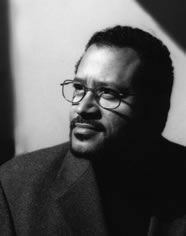Making Race Heard 2011 Summit Keynote Address
Date & time
Dec 2, 2011,
3:00-5:00 pm EST
Location

Making Race Heard is a student-driven initiative at the University of Michigan School of Social Work that aims to bring race to the forefront of our experiences as professionals and future social workers. Despite primarily serving Detroit and surrounding areas, there was a general lack of acknowledgement around how race affects our work and so this monthly series was developed. It was our hope to foster an environment that would allow students, faculty, staff, and community members to come together and discuss how issues of race and other social identities impact our personal and professional lives. We belong to a University culture that prides itself on the diversity of our community, yet the topic of race (its implications on our daily interactions, experiences in the classroom, and larger policies that shape our lives) is one that is constantly circumvented. Too often race is discussed as a 'problem' of the past, and more often this 'problem' does not receive the attention it deserves. We hope that through our events and culminating summit, participants are challenged to examine their own biases and recognize their own privileges. We aim to use dialogue as a tool to work to identify concrete ways in which we can collaboratively move from theory to social justice action.
About the speaker
Dr. Michael Eric Dyson, named by Ebony as one of the hundred most influential black Americans, is the author of sixteen books, including Holler if You Hear Me, Is Bill Cosby Right?, and I May Not Get There With You: The True Martin Luther King Jr. He is currently University Professor of Sociology at Georgetown University. He lives in Washington, D.C.
Co-sponsors: National Center for Institutional Diversity; College of Engineering; College of Literature, Science & Arts; Department of Afroamerican and African Studies; Department of English Language & Literature; Department of Philosophy; Division of Student Affairs; Ford School Center for Public Policy in Diverse Societies; Ginsberg Center for Community Service & Learning; Office of Academic Multicultural Initiatives; Office of Multi Ethnic Student Affairs and Trotter Multicultural Center; Rackham Graduate School; Taubman College of Architecture and Urban Planning; School of Medicine and the Student Diversity Council; School of Social Work
Additional Support provided by: Association of Black Social Work Students; Comprehensive Studies Program; Department of Comparative Literature; Department of History; Department of Native American Studies; Department of Political Science; Department of Screen Arts & Cultures; School of Natural Resources & the Environment; Program on Intergroup Relations